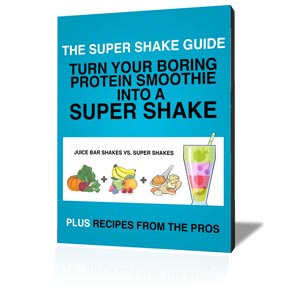I am not one to jump on fitness fads. When I say I am thinking about going gluten free let me be clear – this is not about weight loss nor am I experiencing unpleasant symptoms when I eat wheat. Bread doesn’t make me bloated. I don’t feel sluggish after my morning Kashi Go Lean.
So why am I thinking of giving up some of my favorite foods? Because I may have an opportunity to make a choice before another autoimmune disease strikes.
My first autoimmune disease was my type 1 diabetes diagnosis in 1985. My immune system attacked the beta cells in my pancreas and my body stopped producing insulin. My second autoimmune disease was Hashimoto’s Disease in 2011 where my immune system starting attacking my thyroid. For both of these conditions I take medication – insulin (since my body can no longer make it) and methimazole to slow down my hyperactive thyroid.
For my diabetes, I’ve always considered food as part of my treatment plan. In 1985 the centerpiece of my diabetes education class was “DO NOT EAT SUGAR”. I took this to heart. Even at my eating worst, I was not indulging in cupcakes and candy bars. Today dessert is a rare treat, usually shared with my husband on vacation.
When I was diagnosed with Hashimoto’s I grudgingly accepted the medication but also looked at what part my lifestyle could play in my treatment. I worked on reducing my stress load (which was off the charts in 2010 and 2011). I also drastically reduced my dairy consumption. Exposure to cow’s milk protein at an early age has always been discussed as possible autoimmune trigger for type 1 diabetes. As I researched Hashimoto’s, avoiding dairy was also discussed as part of the treatment. I cannot at this point say if my dairy redux has helped my Hashimoto’s but it’s done wonders for my sinuses.
Another possible autoimmune trigger is gluten. Celiac disease is also an autoimmune disease caused by an immune system reaction to eating gluten, a protein found in wheat, barley and rye. Statistics vary but up to 10% of those with celiac develop type 1 diabetes and visa versa. They are both caused by similar genes and are associated with autoimmune thyroiditis aka Hashimoto’s. Left untreated, celiac can cause damage to brain, nervous system, liver and other organs due to vital nutrients not being absorbed. There is no cure but it can be managed with a strict gluten free diet.
I find myself at another decision point. For once in my life, it is a proactive one. Diabetes attacked me quickly and out of nowhere. Hashimoto’s blind sided me as well. Given the choice I would have done pretty much anything the doctor told me if it would have prevented either disease.
I have no celiac symptoms. I do have a choice and I have knowledge. I have a blood draw today. I have a doctor’s appointment next week. We will look past my levels of TSH (Thyroid Stimulating Hormone), T3 and T4. We’re going to look at the antibodies, the immune system reaction, in my body. If it’s still attacking it’s time to see if we can stop it. Or at the very least slow it down. I can only hope my endocrinologist can offer me some real advice and direction. Then, based on our conversation, I can make an educated and empowered choice.
We all have choices in how we protect our health. It can be as simple as always wearing our seat belt or getting our flu shot. Or it can mean fundamental shifts in how we live and eat. But never feel like you can’t make a difference in your health. Risk factors are an opportunity for a different future. A diagnosis can be a wake up call. You may not be able to “cure” yourself but you can affect your quality of life. You always have the option to live the best life possible.
What choices have you made to protect your health? If you have a chronic condition, how has lifestyle been part of your treatment plan?



